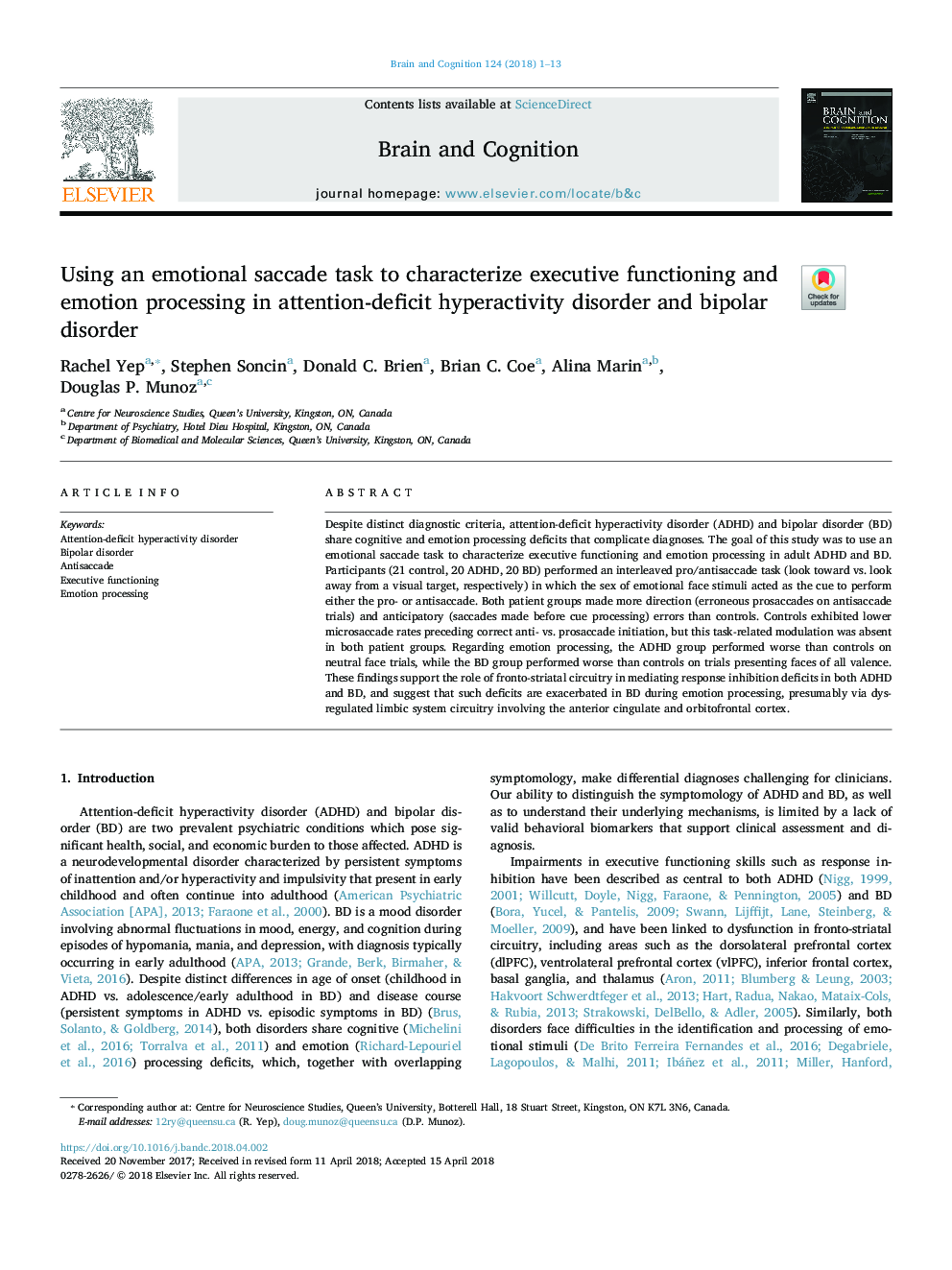| Article ID | Journal | Published Year | Pages | File Type |
|---|---|---|---|---|
| 7282543 | Brain and Cognition | 2018 | 13 Pages |
Abstract
Despite distinct diagnostic criteria, attention-deficit hyperactivity disorder (ADHD) and bipolar disorder (BD) share cognitive and emotion processing deficits that complicate diagnoses. The goal of this study was to use an emotional saccade task to characterize executive functioning and emotion processing in adult ADHD and BD. Participants (21 control, 20 ADHD, 20 BD) performed an interleaved pro/antisaccade task (look toward vs. look away from a visual target, respectively) in which the sex of emotional face stimuli acted as the cue to perform either the pro- or antisaccade. Both patient groups made more direction (erroneous prosaccades on antisaccade trials) and anticipatory (saccades made before cue processing) errors than controls. Controls exhibited lower microsaccade rates preceding correct anti- vs. prosaccade initiation, but this task-related modulation was absent in both patient groups. Regarding emotion processing, the ADHD group performed worse than controls on neutral face trials, while the BD group performed worse than controls on trials presenting faces of all valence. These findings support the role of fronto-striatal circuitry in mediating response inhibition deficits in both ADHD and BD, and suggest that such deficits are exacerbated in BD during emotion processing, presumably via dysregulated limbic system circuitry involving the anterior cingulate and orbitofrontal cortex.
Keywords
Related Topics
Life Sciences
Neuroscience
Cognitive Neuroscience
Authors
Rachel Yep, Stephen Soncin, Donald C. Brien, Brian C. Coe, Alina Marin, Douglas P. Munoz,
